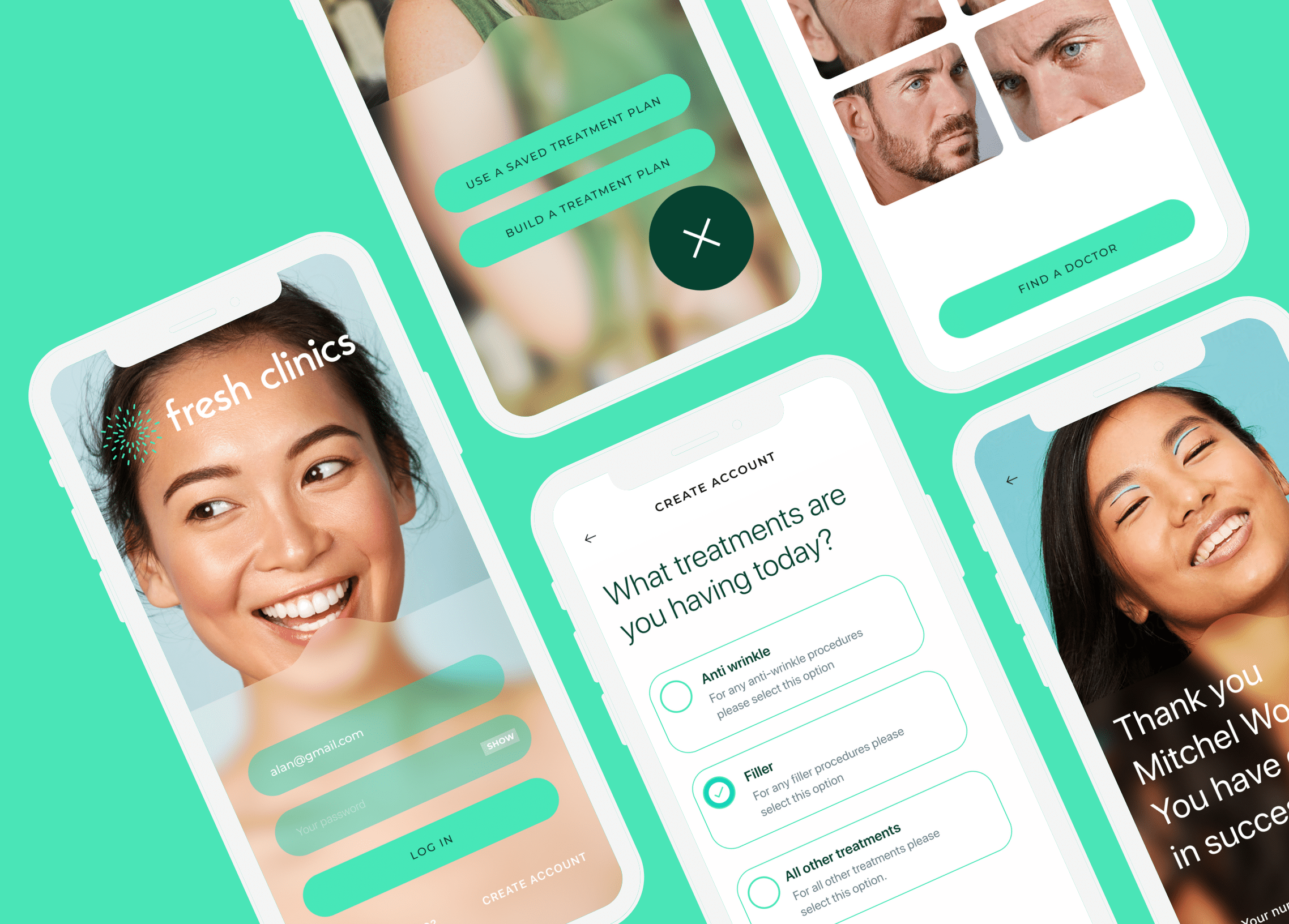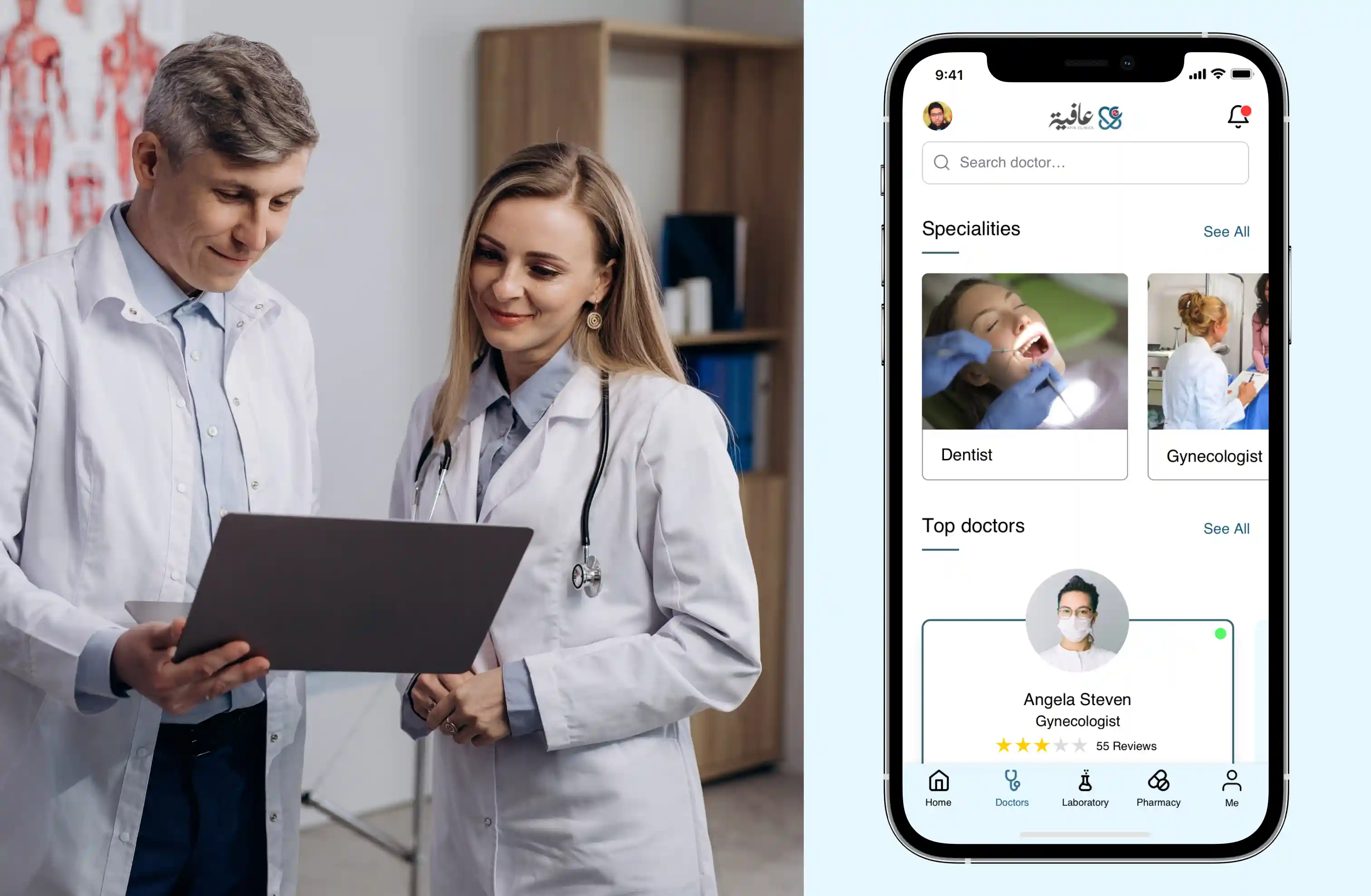Improve Operations: Why Your Clinic Requirements a Mobile App for Clinics Now
Improve Operations: Why Your Clinic Requirements a Mobile App for Clinics Now
Blog Article
The Future of Medical Care: Why Clinics Need a Mobile Application Today
As the medical care landscape remains to advance, facilities deal with mounting stress to adjust to person assumptions for greater ease and accessibility. The integration of mobile applications can work as an essential method for boosting individual engagement and simplifying operations. By leveraging technology to enhance communication and offer vital services, centers not only deal with present needs yet additionally position themselves for future success. Nonetheless, the implications of this shift prolong beyond plain operational performance; they could redefine patient connections and care delivery in extensive methods. What might this change appear like for both individuals and centers?
Transforming Client Expectations
As the landscape of health care develops, patient assumptions are going through a substantial improvement. Today's clients are increasingly looking for convenience, access, and personalized treatment.
Furthermore, individuals are ending up being extra notified and empowered, commonly researching problems and therapies online prior to appointments. This heightened awareness is combined with a need for openness in medical care procedures, consisting of expense quotes and therapy options. Consequently, companies are forced to adapt by adopting electronic tools that improve the individual experience.
The assumption for prompt and reliable interaction has actually never ever been greater, with several people taking into consideration responsiveness a critical component of quality care. mobile app for clinics. In this evolving landscape, healthcare organizations must recognize these changing expectations and leverage mobile applications to cultivate an extra patient-centric strategy, making certain that they not just meet yet surpass the criteria established by today's enlightened customers
Enhancing Individual Interaction

Mobile applications assist in interaction in between individuals and doctor, enabling real-time appointment scheduling, pointers for medicine adherence, and straight messaging attributes. These functionalities not just enhance ease however additionally build a sense of responsibility among patients. Furthermore, mobile applications can use academic material customized to individual demands, assisting clients much better recognize their conditions and treatment options.
The combination of gamification elements within medical care applications can also encourage individuals to engage in healthy and balanced actions, strengthening positive way of life changes. Inevitably, enhancing person involvement with mobile applications leads to improved health and wellness outcomes, higher patient contentment, and a much more collaborative medical care experience.
Improving Center Operations
Enhancing clinic operations is essential for enhancing process efficiency and enhancing person care. The application of mobile applications can significantly lower administrative worries, allowing doctor to concentrate more on client communications. By automating appointment organizing, person check-ins, redirected here and billing processes, facilities can reduce wait times and enhance general functional performance.
Mobile apps likewise assist in real-time accessibility to patient documents, making it possible for healthcare professionals to make educated choices promptly. This immediacy not just boosts the high quality of treatment but additionally reduces the possibility of errors connected with lost or dated info. Leveraging mobile modern technology sustains a more organized approach to managing client follow-ups and treatment plans, guaranteeing that no important actions are ignored.
This permits for timely replenishment and aids avoid disruptions in person care due to equip lacks. By incorporating these functionalities into their everyday procedures, clinics can develop a much more cohesive and efficient atmosphere, inevitably leading to boosted patient end results and satisfaction.
Improving Interaction Channels
Efficient interaction is often pointed out as a foundation of quality health care distribution. In today's busy medical atmosphere, mobile applications can dramatically enhance communication networks between centers, individuals, and doctor. By integrating mobile apps into their operations, clinics can assist in real-time interactions, ensuring that clients receive timely details regarding their consultations, examination results, and treatment strategies.
Mobile applications additionally empower patients to communicate directly with their health care teams through protected messaging functions. This direct line of communication promotes a feeling of interaction and enables prompt explanation of problems, which can bring about far better adherence to therapy methods. Moreover, push notices can remind clients of upcoming appointments or drug timetables, minimizing read here no-show prices and enhancing general health and wellness outcomes.

Remaining Competitive in Health Care
In a swiftly developing medical care landscape, organizations should focus on development and flexibility to maintain a competitive side. The integration of mobile applications into medical care services is no longer optional; it is crucial for clinics aiming to boost client involvement, streamline operations, and boost total service shipment.
As individuals increasingly count on electronic systems for health administration, facilities that fall short to adopt mobile innovation risk falling back. A well-designed mobile application can supply features such as visit organizing, telemedicine appointments, and access to medical documents, giving people with convenience and fostering loyalty.

Rivals are likewise buying mobile services, so staying in advance requires continual enhancement and staying notified about technical developments. Facilities should not just execute mobile applications yet likewise take part in regular updates and improvements. Ultimately, the effective integration of mobile innovation will certainly differentiate forward-thinking medical care organizations and established the standard for patient-centric care in an electronic globe.
Final Thought
In verdict, the integration of mobile applications in centers is important to attend to the evolving landscape of individual assumptions. By enhancing individual involvement, improving procedures, and boosting communication channels, centers can dramatically boost health and wellness end results. In addition, the adoption of mobile technology settings facilities to continue to be affordable in an increasingly digital health care setting. Inevitably, the strategic implementation of mobile apps represents a vital action towards delivering customized and available healthcare, thereby click for more fulfilling the needs of today's empowered clients.
Ultimately, boosting person interaction through mobile applications leads to improved wellness results, greater patient satisfaction, and an extra collective healthcare experience.Mobile applications likewise facilitate real-time accessibility to individual records, making it possible for health care experts to make informed decisions swiftly. In today's fast-paced medical environment, mobile applications can considerably improve communication channels in between facilities, clients, and medical care carriers.Mobile applications also equip patients to connect directly with their health care teams with secure messaging functions. Ultimately, the calculated implementation of mobile apps stands for an important action toward providing accessible and individualized healthcare, thus meeting the needs of today's equipped people.
Report this page